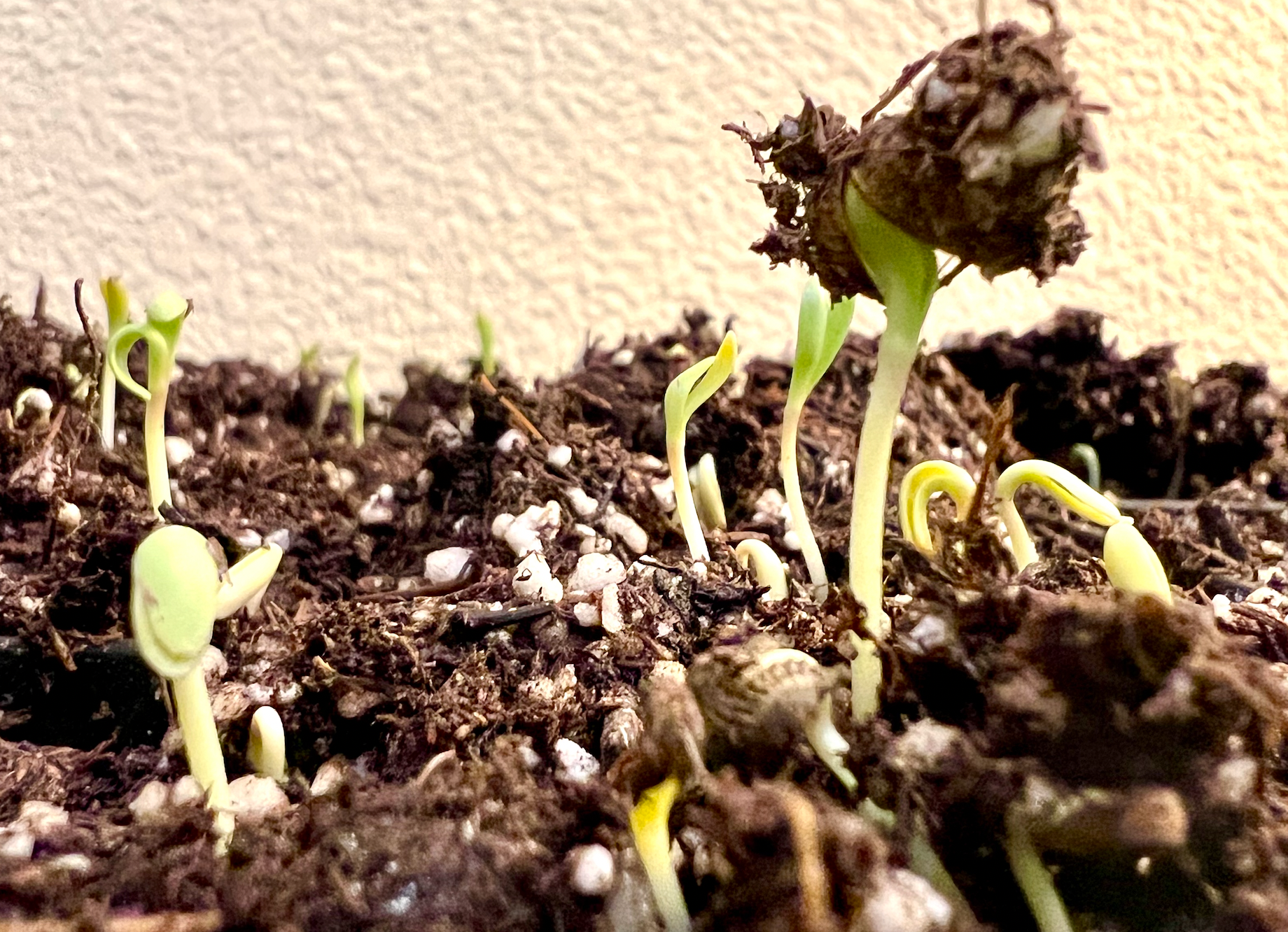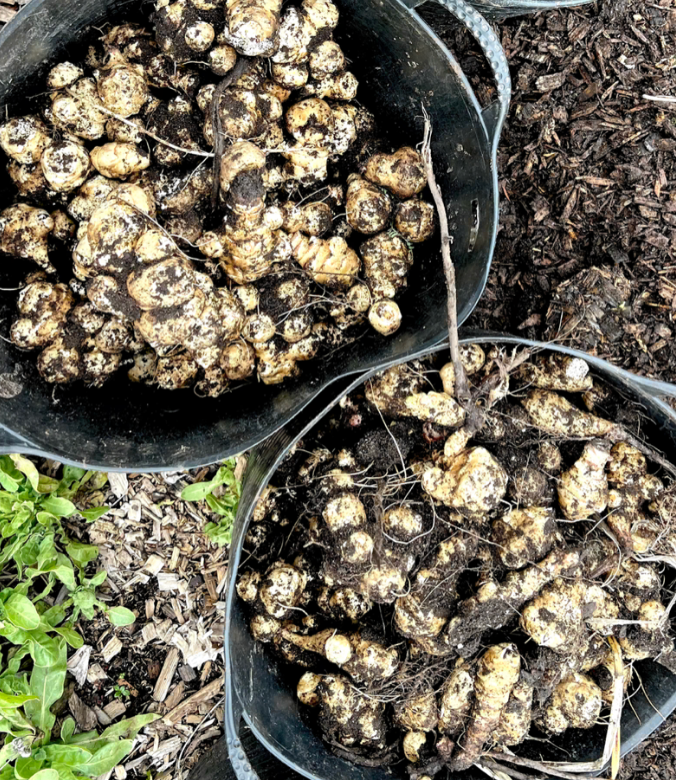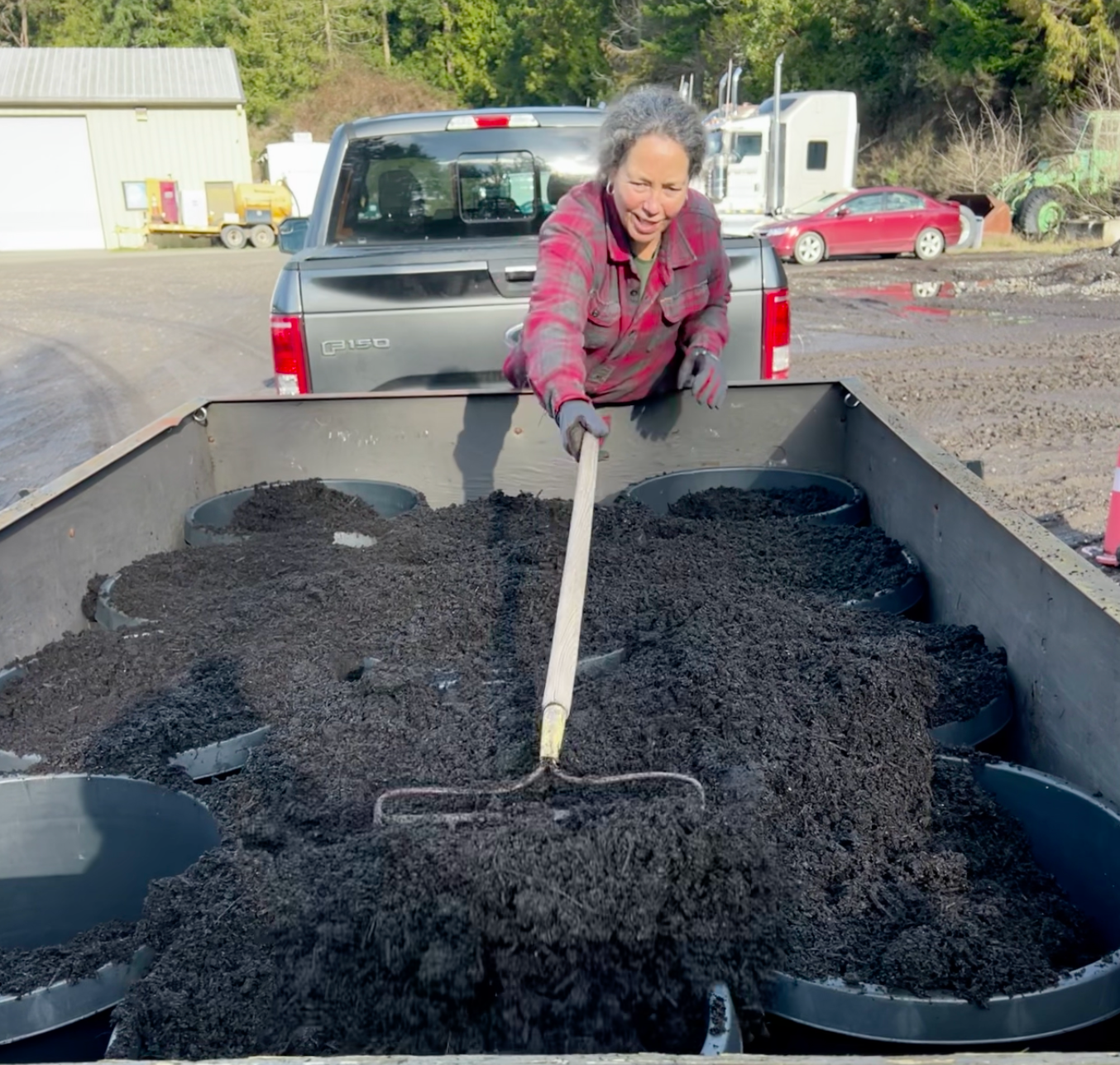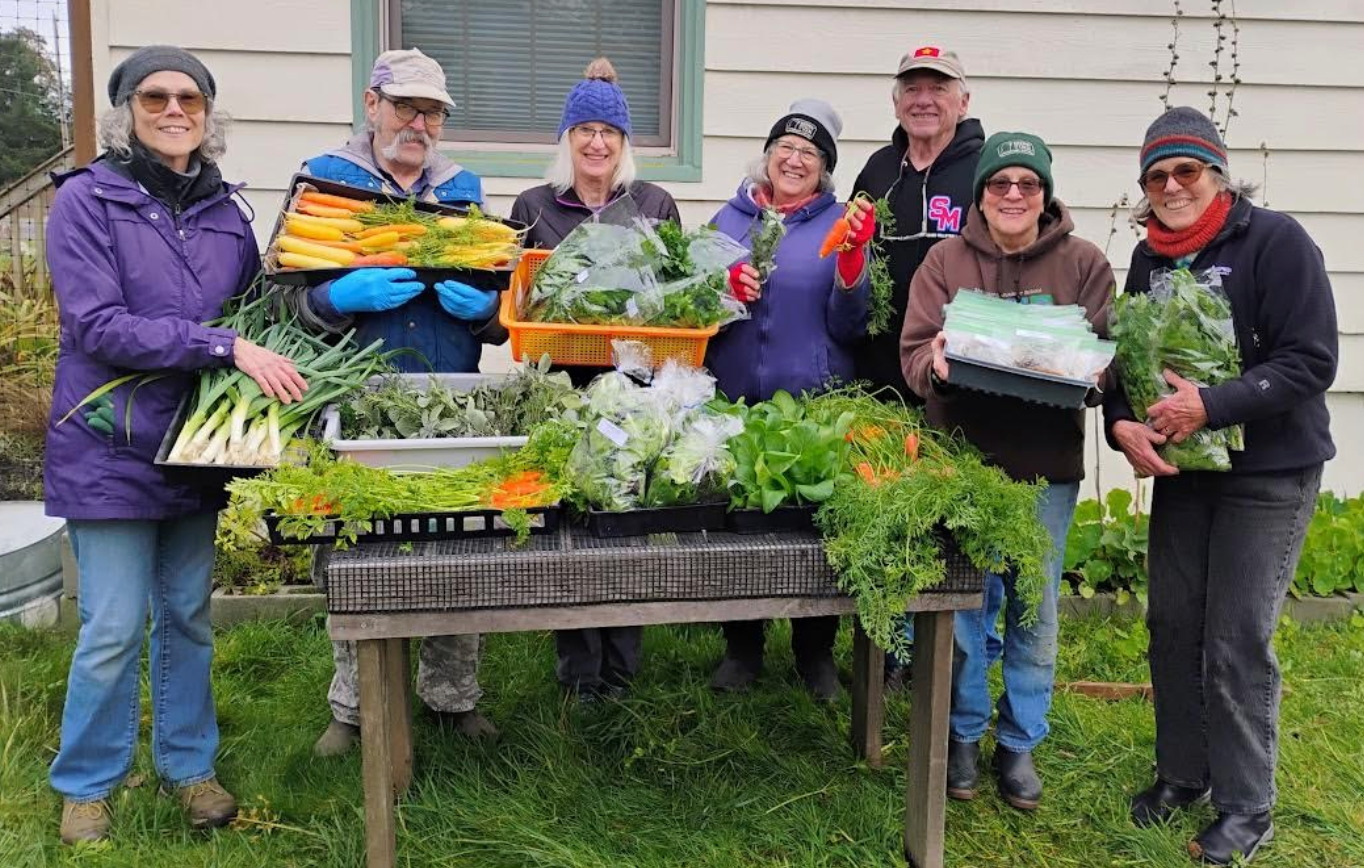Newsletter February 2024

Annual Meeting info included
In this Issue...
- In the Garden this month…
- Year-to-Date Harvest Numbers
- Annual Report and New Board Member introduction
- Recent Postings
- How to Volunteer
February in the Garden
February is the toughest month in which to predict weather. I have seen it in the teens and I have seen it in the 70’s. It is really varied. February has the highest chance of snowfall. The average temperature is 47° - 39° F. This month looks to start cooler than average then warm up. There is a new weather station in Chimacum that will help us get more local temperature including soil temps. https://weather.wsu.edu/ . You might want to check it out.
It is time to get started with many indoor starts. Set up your grow space with heat mats and lights or just clear a windowsill. Some seeds can be started early and don't need or want excess heat and light. These are mainly onions which are light sensitive. Others benefit from a little extra warmth and light like lettuce but not too much. These do well in window sills. Then we move onto plants that will not germinate without warmth at about 70° F and as much light as they can get. Tomatoes, peppers, etc. Basil also falls in this category so much so as to need light on the seeds to germinate. Brassicas want it warmer than lettuce but not as warm as the heat lovers. I tend to start them on the heat mats and then move them to the edges so they are warmish but not fully heated. They still need as much light as you can give them.
Planting: This is a watch and see time. The local forecast is our best bet for timing . Is it going to freeze again or will it warm up and everything will thrive. Usually we can plant perennial herbs and berry bushes now. Sometimes we can plant peas or at least start them inside for transplanting. Beets, radishes, turnips and spinach may be able to start but it is a gamble. If you have excess seed give it a try but cover them either with row covers or cloches. Yes you can still plant garlic and put out onion sets now for a later harvest this summer.
Garden work: Now is the time to clean up your beds and get them ready. Clear a few cover crops and turn in or cut down green manure. Add Compost. Start new beds or set out straw bales for straw bale gardening. It is still too wet to do much weeding but clearing weeds from the pathways and adding cardboard and mulch or sand to keep them in place is a good project.
Harvesting: For those lucky enough or foresightful enough to have gotten their winter garden through last month's freeze there are still some things to harvest. Beets, sprouting broccoli, carrots, lettuce, spinach, sunchokes, and turnips as well as many herbs.
Planning ahead will help us get more produce in these shoulder seasons. I hope we can all improve our gardens and extend our growing season year round. So we can better Grow, Gather and Give for many years to come.
Happy Gardening
Dianna Wiklund 🌻
FBG Garden Coordinator
Year-to-Date Harvest - 31 pounds! Yes, you can grow in the PNW winter.
2023 Annual Report and new board introduction
This Month’s Postings on FoodBankGrowers.org
THANK YOU VOLUNTEERS
New Year Resolution - Better Nutrition
Recovery Cafe and Food Bank Growers
Cold Snap Coverup
Meet Bonnie Obremski, Board Member
Meet Milly Lierman, Board Member
Meet Gayle Petrick, Board Member
Meet Lee BeBout, Board Secretary
Volunteers Needed for:
- NEXT SEASON Garden Managers -- Each garden needs a point person -- someone who can point to what to do next… This year we're partnering new Garden Managers with experienced ones for every step. Between them, Dianna, and the Monthly "to dos", you'll have everything you need to produce baskets full of produce.
- WINTER Growers - - Learn how to grow fresh food for the Food Banks while learning how to grow food for yourself at home. We guarantee the every day you'll learn something new. All gardens will need help -- the more volunteers, the easier and more fun the work becomes. Go to the MAP SECTION of the website and locate a garden near you. Stay at one, or rotate through many. Hours differ by garden.
- WINTER Harvesters - Each garden will need harvesters to pick and prepare the produce for the Food Bank distribution. Hours differ by garden.
- GLEANERS - The gleaning season starts in August. If you want to be included in 2024 tree donation or volunteer to pick - write to PTgleaning@gmail.com.
VOLUNTEER HERE for computer work, writing, office-type duties… if you have skills to donate, we will find a place for them.
Related Topics
More Articles



